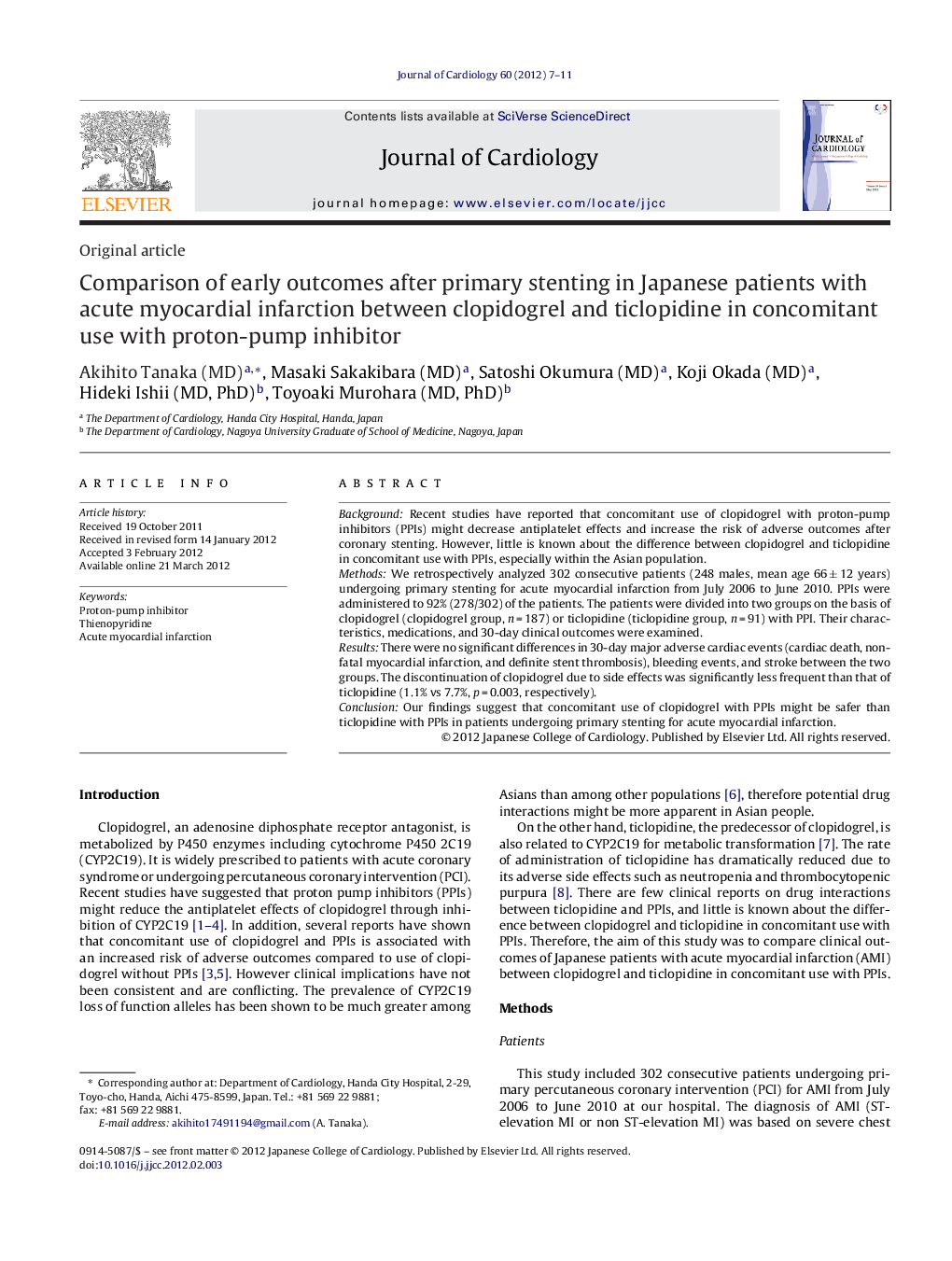| Article ID | Journal | Published Year | Pages | File Type |
|---|---|---|---|---|
| 2963276 | Journal of Cardiology | 2012 | 5 Pages |
SummaryBackgroundRecent studies have reported that concomitant use of clopidogrel with proton-pump inhibitors (PPIs) might decrease antiplatelet effects and increase the risk of adverse outcomes after coronary stenting. However, little is known about the difference between clopidogrel and ticlopidine in concomitant use with PPIs, especially within the Asian population.MethodsWe retrospectively analyzed 302 consecutive patients (248 males, mean age 66 ± 12 years) undergoing primary stenting for acute myocardial infarction from July 2006 to June 2010. PPIs were administered to 92% (278/302) of the patients. The patients were divided into two groups on the basis of clopidogrel (clopidogrel group, n = 187) or ticlopidine (ticlopidine group, n = 91) with PPI. Their characteristics, medications, and 30-day clinical outcomes were examined.ResultsThere were no significant differences in 30-day major adverse cardiac events (cardiac death, non-fatal myocardial infarction, and definite stent thrombosis), bleeding events, and stroke between the two groups. The discontinuation of clopidogrel due to side effects was significantly less frequent than that of ticlopidine (1.1% vs 7.7%, p = 0.003, respectively).ConclusionOur findings suggest that concomitant use of clopidogrel with PPIs might be safer than ticlopidine with PPIs in patients undergoing primary stenting for acute myocardial infarction.
